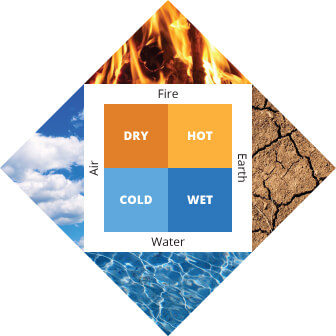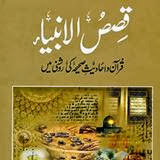What did Empedocles Believe about Matter-Urdu

امپدوکلس۔ فلسفی نے سب سے پہلے محبت و نفرت کے دواصول متعارف کروائے جو خیر اور شر کو جنم دیتے ہیں
Life
The most detailed source for Empedocles’ life is Diogenes Laertius, Lives of the Eminent Philosophers 8.51-75. Perhaps because of his claims to divine status and magical powers, a remarkable number of apocryphal stories gathered around the life of Empedocles in antiquity. There are many stories about his death:
- Empedocles fell overboard from a ship and drowned;
- he fell from his carriage, broke his leg and died;
- hanged himself;
- or the most famous account that, when he felt he was shortly to die and because he wished to appear to have been apotheosized, he leapt into the crater of Etna. In this story, the ruse was unfortunately discovered when one of his trademark bronze sandals was thrown up by the volcano.
Katharmoi
His work survives only in fragments, but luckily in a far greater number than any of the other Presocratics. These fragments are mostly quotations found in other authors such as Aristotle and Plutarch. The extant fragments all come from a work of hexameter poetry traditionally entitled On Nature (Peri Phuseôs) or Physics (Phusika) and some from a possibly separate work called Purifications (Katharmoi).
On Nature
Indeed Empedocles’ writings contain ideas and themes that may seem quite incompatible with one another. On Nature’s usually reconstructed seemed the work of a mechanism physicist which seeks to replace the traditional gods with four lifeless impersonal elements and two cosmic forces of attraction and repulsion, Love and Strife. The Purifications, on the other hand, seemed the work of a deeply religious Pythagorean mystic: it was often thought that Empedocles either wrote the Purifications as a move away from the mechanistic materialist position in On Nature, or that the Purifications were an addendum to On Nature, looking at the world from quite a different perspective.
Physics
The foundations of Empedocles’ physics lie in the assumption that there are four ‘elements’ of matter or ‘roots’. He calls them, using a botanical metaphor that stresses their creative potential: earth, air, fire, and water. These are able to create all things, including all living creatures, by being ‘mixed’ in different combinations and proportions. Each of the elements, however, retains its own characteristics in the mixture, and each is eternal and unchanging. The posting of these four roots of matter forms part of a tradition of opposite material creative principles in Presocratic philosophy. But it also has its origins in an attempt to counter the theories of Parmenides who had argued that the world is single and unchanging. Since nothing can come from nothing and nothing can be destroyed into nothing.
Cosmology
He also posits two cosmic forces which work upon the elements in both creative and destructive ways. These he personifies as Love (Philia)
– the force of attraction and combination
and Strife (Neikos)
– a force of repulsion and separation.
Whether these cosmic forces envisaged in simply mechanistic terms. As descriptions of the way things happen, or as expressions of internal properties of the elements. Or as external forces that act upon the elements, is not clear. It is also unclear whether the two forces saw as impersonal mechanistic physical forces. Or as intelligent divinities that act in purposive ways in creation and destruction.
Biology
Empedocles’ physics have a particular biological focus. As his choice of the botanical metaphor of ‘roots’ or elements. The term ‘roots’ stresses the creative potential of the roots. Rather than illustrating the way they create things by mixing in different combinations. Elements (stoicheia in Greek, elementa in Latin) is the word for the letters of the alphabet. And is a metaphor that stresses the ability of the elements of matter to form different types of matter by the interchange of position. It is just as a limited number of letters are able to form all sorts of different words on the page.
Origin of Species
He presents us with a detailed rational mechanism for the origin of species. Greek traditions include the aetiological myths of the origin of a particular species. Many of animal by a transformation from a human being. Ovid in the Metamorphoses has collected these ancient mythological aetiologies.
Note: This article was originally published on our related blog. We have merged content from our educational subdomains to provide easier access in one place. The original post is still available at: https://videos.urdutubes.com/2019/04/what-did-empedocles-believe-about-matter-urdu.html
All content is owned and authored by us, and redistribution or reuse is not allowed without permission.
Note: This post is part of our content merger from multiple educational subdomains. To access the original content, visit: books.urdutubes.com for book-related content, PDFs, and downloads, or videos.urdutubes.com for video-related posts. All content is owned and authored by us, and redistribution or reuse is not allowed without permission.




![Khawateen Digest February 2025 [Download PDF] Khawateen Digest – February 2025 Edition: A Must-Read for Every Woman! The February 2025 issue of Khawateen Digest is packed with engaging stories, insightful articles, and practical tips that cater to the modern woman. From inspiring tales to expert beauty and health advice, this edition has it all. Whether you're in the mood for a gripping story or seeking helpful tips for daily life, this digest will keep you hooked. Don't miss out on the latest edition – download the Khawateen Digest February 2025 now and enjoy a well-rounded read that speaks to every woman's interests.](https://www.urdutubes.com/wp-content/uploads/2025/04/Khawateen-Digest-February-2025-Download-PDF-218x150.jpg)
![Khawateen Digest January 2025 [Download PDF] Khawateen Digest January 2025 [Download PDF]](https://www.urdutubes.com/wp-content/uploads/2025/04/Khawateen-Digest-January-2025-Download-PDF-218x150.jpeg)
![Kiran Digest April 2024 [Download PDF] Kiran Digest April 2024 [Download PDF]](https://www.urdutubes.com/wp-content/uploads/2025/04/Screenshot-2025-04-13-113317-218x150.png)
![Kiran Digest March 2024 [Download PDF]](https://www.urdutubes.com/wp-content/uploads/2018/05/KiranDigestMay2018255BDownloadFreePDF255D.jpg)







[…] from the sun causes water from seas, lakes, streams, ice and soils to ascend into the air and transform into water fume (gas). Water fume beads combine to make […]